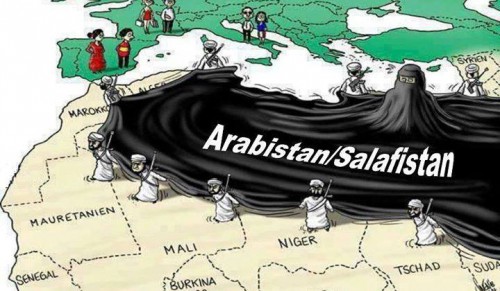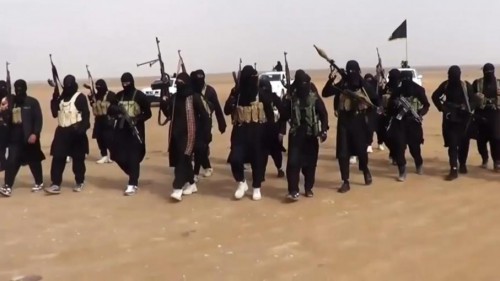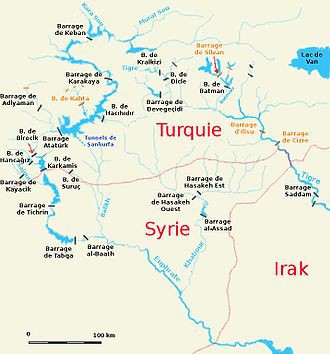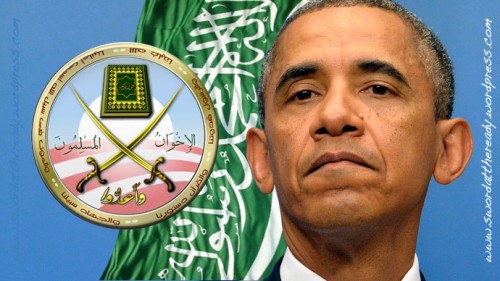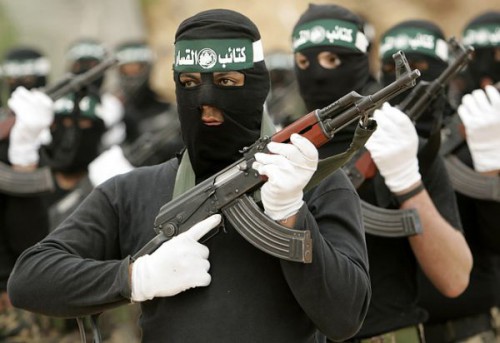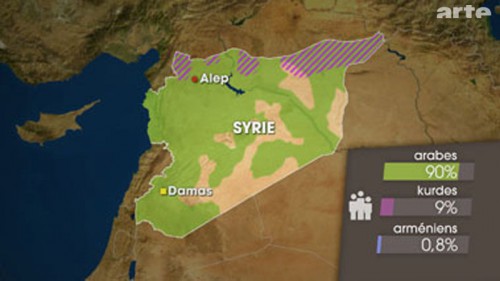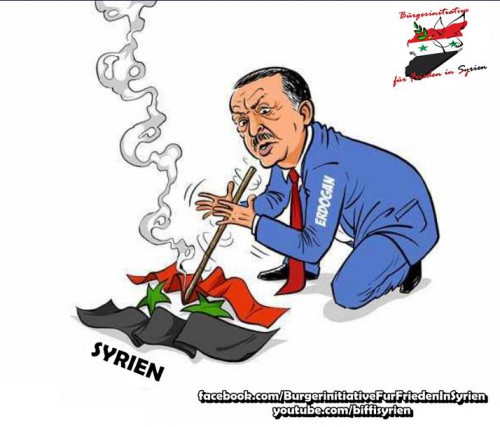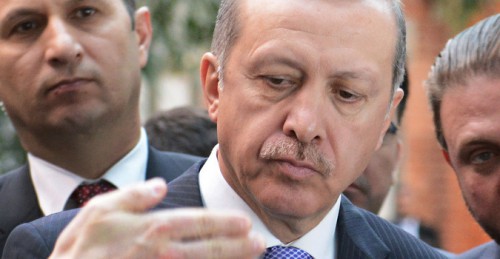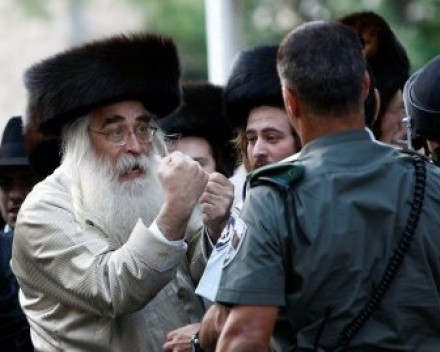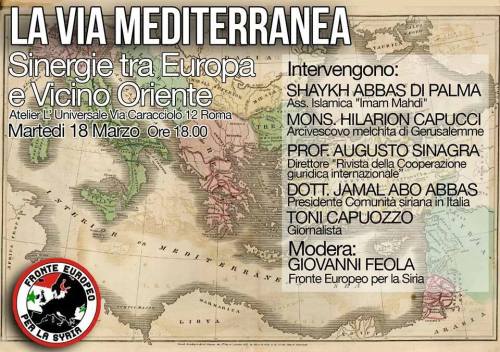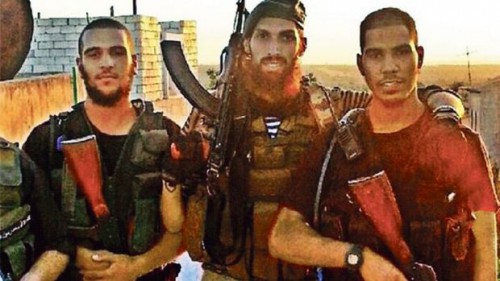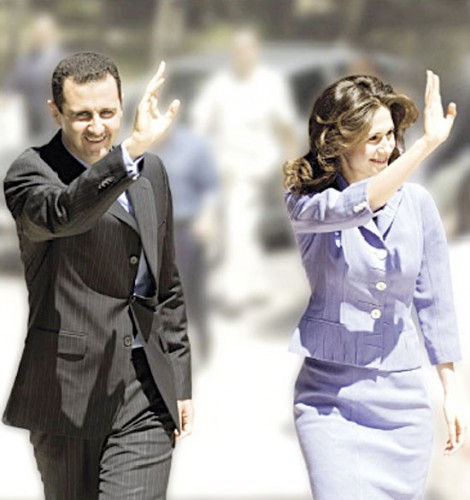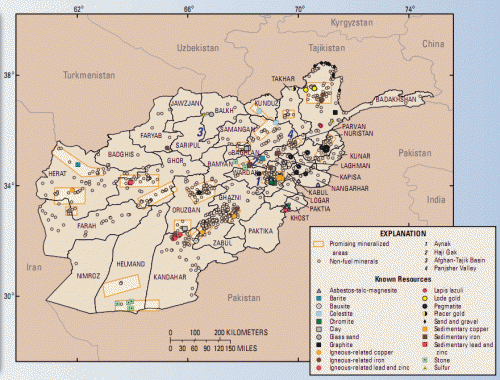
Fosfatos y uranio: ¿Otros motivos para la intervención saudí en Siria?
por Lajos Szaszdi
Ex: http://paginatransversal.wordpress.com
Otra razón del por qué países como EE.UU., Arabia Saudita, Francia, el Reino Unido, Jordania, Israel y Turquía están envueltos en desestabilizar a Siria podría ser para asumir derechos de explotación y control sobre los depósitos de uranio que se hallan en los yacimientos de rocas de fosfatos de Siria. Según M. Ragheb, hay más demanda de uranio en el mundo como combustible para centrales nucleares de energía eléctrica que suministros disponibles de este mineral.
En el año 2005 por ejemplo menciona que se consumieron 68,000 toneladas de mineral de uranio en bruto pero sólo hubo una producción de 39,000 toneladas aquel año. Esto dice representaría una diferencia de 43% entre la oferta y demanda global de uranio. Sigue exponiendo que para el 2007 no había suficiente uranio enriquecido para los 435 reactores operando en el mundo en aquel entonces y que generaban 17% de la energía eléctrica mundial. La falta de uranio enriquecido suficiente para satisfacer la demanda global no permitiría tampoco suplir de combustible a 28 nuevos reactores que estaban en construcción en 2007.
El problema aumentará ya que para el 2013 se habrían completado 48 nuevas centrales nucleares a nivel mundial, habiendo 200 nuevos reactores en construcción o que están planeados. Además, Ragheb menciona que Francia produce 80% de su energía eléctrica por medio de centrales nucleares y no poseyendo producción nacional de uranio consume hasta un 15% del uranio producido y ofrecido a la venta globalmente. Menciona igualmente que el Reino Unido, Alemania, Japón y Corea del Sur solo producen 0.196% del uranio producido anualmente en el mundo pero entre los cuatro consumían el 24% producido a nivel mundial. Más aun, colectivamente los países de Occidente según Ragheb producen solo el 4% del uranio disponible a nivel mundial pero consumen el 72% de los suministros globales de uranio.
Infografía: Participación de Rusia en la construcción de centrales nucleares
Los EE.UU. para 2009 tenían proyectadas 28 nuevas centrales nucleares, pero en 2006 consumió 57 millones de libras de óxido de uranio concentrado, de los cuales solo produjo 4 millones de libras, teniendo que importar el resto. Según cita Ragheb, para el año 2025 EE.UU. tendrá una demanda de 75 millones de libras de óxido de uranio concentrado y aún con un aumento nacional de su producción, tendrá que importar de 55 a 65 millones de libras en 2025 para suplir de combustible a sus reactores nucleares.
Se calcula que para 2025 el mundo tendrá una demanda de 230 millones de libras de óxido de uranio concentrado pero sólo habrá una oferta de 200 millones de libras, o tendrá una demanda de 300 millones de libras de óxido de uranio concentrado y tan solo una oferta de 170 millones de libras. Por esta carestía de uranio los precios del mineral en el mercado pueden ir en aumento de un promedio estimado por Ragheb de $65 dólares la libra de uranio – pudiéndose comprar por $42 dólares la libra en el mercado al contado (spot market) – hasta inclusive un precio de $136 dólares la libra alcanzado en 2007, o hasta de $200 dólares la libra de uranio en un futuro. De acuerdo a Ragheb, de producirse tales diferencias entre la oferta y la demanda de uranio para las centrales nucleares, “haría la extracción de uranio de fuentes de rocas de fosfato necesaria para salvar la distancia” [entre oferta y demanda].
De acuerdo a Ragheb, Siria tiene ricos depósitos de rocas de fosfato y ocupa el quinto lugar en el Cercano Oriente en la producción de rocas de fosfato, habiendo por ejemplo extraído 2.04 millones de toneladas de fosfato en 2001. En este sentido, la mayor parte de las rocas de fosfato producidas son exportadas. Es interesante que en la ciudad de Homs, la tercera ciudad en población de Siria después de Alepo y Damasco, hay una “micro” planta de producción de ácido fosfórico para su uso en el procesamiento de alimentos que según indica Ragheb está bajo la supervisión del Organismo Internacional de Energía Atómica. No hay al parecer indicios de que la planta de acuerdo a esta fuente produzca uranio como derivado de la producción de ácido fosfórico. Ha de asumirse que Siria posea importantes yacimientos de uranio contenido en sus depósitos de rocas de fosfato, probablemente codiciados ambos por al menos algunos de los países involucrados activamente en desestabilizar a Siria para causar la caída de su gobierno y poner en su lugar un régimen “quislingo” (por Quisling, colaboracionista noruego de las fuerzas de ocupación alemanas de su país y del régimen alemán hitleriano durante la II Guerra Mundial), favorable a los intereses económicos de esos estados conspiradores.
De acuerdo al International Fertilizer Development Center (IFDC), el Centro Internacional de Desarrollo de Fertilizantes citando a Gecopham, la Compañía General para Fosfatos y Minas estatal siria, los depósitos de rocas de fosfato descubiertos en Siria sobrepasan los 2,000 millones de toneladas. Según Gecopham, los yacimientos de fosfato del este del país son los más importantes. La producción anual de concentrado de fosfato es de 3.85 millones de toneladas a partir de 2005, exportándose el 80% y empleándose el 20% restante en producir ácido fosfórico y también fertilizantes de fosfato en la planta Fertilizantes Homs en la ciudad del mismo nombre.
Infografía: Funcionamiento de una central nuclear
En el blog anterior se mencionó citando a Ragheb que después de Marruecos Arabia Saudita, Egipto, Siria, Jordania e Israel contienen las reservas más importantes de rocas de fosfato en el Cercano Oriente. De estos países mencionados, Arabia Saudita, Jordania e Israel, vecinos de Siria, están envueltos en apoyar a los insurgentes y terroristas cuyo objetivo es tratar de provocar la caída del gobierno sirio por la fuerza. Se puede considerar a esos estados no sólo actualmente enemigos de Siria sino también competidores del estado sirio en el mercado internacional como dueño de las empresas dedicadas a la explotación, procesamiento y exportación de los depósitos de fosfato sirios.
Podría ser también que Arabia Saudita, Jordania e Israel también tengan interés en explotar los potenciales depósitos de uranio en las rocas fosfáticas de Siria para exportación en beneficio suyo y para su propio consumo a costa de Siria, tras eliminar con un cambio de gobierno – como ahora están tratando – al estado sirio como competidor comercial e industrial, con la esperada privatización de compañías estatales en beneficio de los intereses extranjeros. Las famosas privatizaciones neoliberales tan promovidas y hasta impuestas por EE.UU. y sus aliados de la Unión Europea.
Hay que recordar del anterior blog que Arabia Saudita en su Mina de Al Jalamid espera producir anualmente 4.5 millones de toneladas de concentrado de fosfato, habiendo mencionado Ragheb que el proyecto de fosfato de la Mina de Al Jalamid esperaba producir 3 millones de toneladas al año. Esto se compara con la esperada producción siria de 3.85 millones de toneladas de concentrado de fosfato a partir de 2005 y la producción minera de Siria en 2008 de 3.22 millones de toneladas según IFDC, al parecer de concentrado de fosfato.
En 2008 Jordania tuvo una producción minera de 6.27 millones de toneladas de fosfato e Israel ese mismo año produjo 3.09 millones de toneladas de fosfato. Comparativamente de acuerdo a Ragheb, a los depósitos de rocas de fosfato en bruto conocidos en Siria, que sobrepasan los 2,000 millones de toneladas, Jordania tiene depósitos de 1,800 millones de toneladas de rocas de fosfato sin procesar e Israel 1,600 millones de toneladas de rocas de fosfato en bruto. Arabia Saudita puede que tenga tan solo en la Cuenca de Sirhan-Turayf unas 7,800 millones de toneladas métricas de rocas de fosfato en bruto.
No es improbable que algunas de las potencias occidentales involucradas en apoyar a los terroristas e insurgentes islamistas que pretenden derrocar por la fuerza al gobierno sirio lo hagan para ganar acceso a una fuente más de uranio extraído de depósitos de rocas fosfáticas para sus centrales nucleares de energía eléctrica. Dichas potencias buscarían diversificar el número de fuentes de uranio ante la competencia mundial por dicho mineral de cantidades limitadas.
Es interesante que la República Centroafricana es según Ragheb la única en poseer depósitos de fosforita continentales en África en el área de Bakouma, donde se estima que hay 17,000 toneladas de uranio. Igualmente, en otra fuente se menciona que durante la búsqueda de uranio en la década de los 60 del siglo XX, se hallaron depósitos de rocas fosfáticas de la época geológica del Eoceno en la República Centroafricana cerca del área de Bakouma. Los hallazgos, se dice, fueron “notables” por su contenido de uranio, con un promedio de 0.25%” de óxido de uranio.
Según Nicolas Dasnois, aunque la mayor parte de las compañías mineras se concentran en explotar los principales depósitos de uranio como los de Níger – con depósitos identificados de 275,500 toneladas de uranio – y Namibia, otros intereses mineros buscan yacimientos de uranio menores sin explotar como en la República Centroafricana. Los yacimientos de uranio de Siria estarían en esta categoría de depósitos de uranio más pequeños vírgenes.
Con reservas de uranio identificadas de 12,000 toneladas en la República Centroafricana, la compañía nuclear francesa Areva planea iniciar la explotación de los depósitos de uranio del país africano entre 2016 y 2017. Areva es considerada la compañía nuclear más grande del mundo según la Asociación Nuclear Mundial. Con relación a este tema según Dasnois, la compañía canadiense Rockgate Capital Corporation tiene planes de iniciar la producción de los depósitos de Mali de 8,533 toneladas de uranio, otras reservas de uranio que se pueden considerar pequeñas.
No sería improbable que la presencia militar francesa en la República Centroafricana – que acaba de ser extendida con una mayoría de votos por los diputados del Parlamento francés – además de estar en el país africano para reestablecer el orden y poner fin a la violencia sectaria entre musulmanes y cristianos, se halle también para asegurar que Francia en un futuro tenga acceso privilegiado a los depósitos de uranio en los yacimientos de rocas fosfáticas del país africano. Así, a las 1,600 tropas francesas enviadas en diciembre a la República Centroafricana, país con un área similar al de Francia, se acaban de añadir 400 más, para un total de 2,000 soldados.
El año pasado Francia desplegó 4,000 tropas en Mali para expulsar del norte del país africano a insurgentes islamistas radicales que lo ocupaban y desde donde amenazaban con conquistar el sur de Mali controlado por el gobierno maliense. El interés de Francia en intervenir en Mali no se habría limitado a defender el gobierno de una ex colonia, a evitar que el país se convirtiese en una base de operaciones de terrorismo islamista sunita con acceso a minas de oro con el cual financiar actividades terroristas e insurgencias, a impedir que Mali llegase a ser una fuente de exportación del integrismo islamista y la yihad a los países de poblaciones musulmanas de la región del África Occidental y el Sahel o por razones humanitarias para evitar amenazas a la población civil, como en el caso de la República Centroafricana.
Mali es rica en oro y otros minerales, teniendo yacimientos de uranio y depósitos de fosfatos, otro importante sector de minería maliense con reservas potenciales de 22 millones de toneladas de donde también se podría extraer uranio. La intervención militar de Francia en Mali se habría producido también para proteger al país vecino de Níger de mayoría musulmana de ser desestabilizado por los militantes islamistas radicales en Mali, tomándose en cuenta que la empresa de energía atómica francesa Areva opera dos minas de uranio en Níger.
Para Areva las minas nigerinas de Arlit e Imouraren son una importante fuente de uranio para las centrales nucleares de Francia, habiendo la compañía francesa explotado el uranio de Níger por más de 50 años, siendo además el inversor más importante del país africano. De acuerdo a un estudio del Parlamento francés, el 18% del uranio consumido en las 58 centrales de energía atómica francesas en 2008 procedió de Níger. Así en febrero de 2013 Francia tenía unos doce soldados de fuerzas especiales protegiendo la mina de Arlit. Níger, el quinto productor de uranio del mundo, proporciona según la prensa francesa una quinta parte del uranio que consume Francia en sus centrales nucleares.
El proceso de extracción industrial del uranio contenido en ácido fosfórico, éste producto del procesamiento de rocas de fosfato con ácido sulfúrico, puede hacerse más eficiente e incluso abaratarse con el proceso llamado PhosEnergy, “un proceso de intercambio iónico (IX)”. Dicho proceso permite la recuperación de un 95% del uranio en los fosfatos sin residuos radioactivos, pudiendo costar la extracción tan solo $18 dólares por libra de uranio extraída.
Países como Arabia Saudita, Jordania o Francia podrían estar interesados en explotar los depósitos de uranio contenidos en los yacimientos de rocas de fosfato sirios. De estar Riad interesada en intervenir en Siria para tener acceso privilegiado a los depósitos de uranio sirios, la Compañía Minera de Arabia Saudita Ma’aden (Ma’aden Saudi Arabian Mining Company) jugaría un papel fundamental en la producción de uranio sirio extraído de rocas de fosfato. Incluso se ha dicho que Ma’aden desea convertirse en la compañía productora de fosfatos más grande del mundo, otro motivo adicional que podría tener la monarquía saudita de querer controlar los recursos minerales de Siria.
La subsidiaria de la compañía Ma’aden para fosfatos es la Compañía de Fosfatos Ma’aden (Ma’aden Phosphate Company), una empresa conjunta de Ma’aden, con un 70% de las acciones, con SABIC con un 30%. Ma’aden está construyendo una nueva planta de ácido fosfórico que probablemente podría producir uranio extraído de rocas de fosfato, con el año 2016 como “período de contrato” de este proyecto, con capacidad de producción anual planeada de 1.5 millones de toneladas y con un valor de 3.5 mil millones riyales saudíes. Esta planta podría ser parte del proyecto conjunto de Ma’aden con la empresa estadounidense Mosaic y SABIC de Arabia Saudita para la producción minera de rocas de fosfato y la producción de fertilizante a base de éstas. El proyecto, valorado en $7 mil millones de dólares, tendrá una participación del 60% para Ma’aden, de un 25% para Mosaic Corporation (MOS) de Plymouth, Minnesota, actualmente la empresa productora de fosfatos más grande del mundo, y de SABIC con un 15% de las acciones.
En cuanto a localización, se planea levantar el Proyecto de Fosfatos Wa’ad Al Shammal en el norte de Arabia Saudita en la Ciudad Industrial de Minerales Wa’ad Al Shammal. Como parte de este proyecto se va a ampliar la capacidad de procesamiento de la Ciudad Industrial de Minerales Ras Al Jair, localizada en la costa este saudí en el Golfo Pérsico y conectada a la Ciudad Industrial de Minerales Wa’ad Al Shammal por un ferrocarril ya construido. El proyecto, en el cual la compañía americana Mosaic planea invertir mil millones de dólares, empezará a operar en 2016 y tendrá una capacidad proyectada de producción anual de 3.5 millones de toneladas. La intención es satisfacer la demanda anual de fósforos como fertilizantes, que mundialmente crece en alrededor de unas 1.5 millones de toneladas según un alto miembro de Mosaic.
El apoyo de varias potencias a los terroristas e insurgentes en Siria para provocar la caída del gobierno de Damasco podría estar en parte motivado por intereses económicos ligados a una futura explotación de los recursos minerales sirios por empresas y multinacionales pertenecientes a los países que apoyan la desestabilización de Siria. De ser así sería un ejemplo de neocolonialismo en el siglo XXI, y un peligroso ejemplo a seguir por potencias interesadas en poder explotar a toda costa y a favor de sus intereses nacionales corporativos los recursos de los países en desarrollo a expensas de su soberanía, seguridad y bienestar.
Fuente: RT
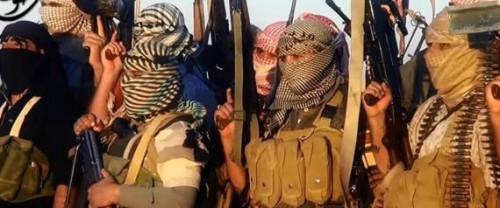






 del.icio.us
del.icio.us
 Digg
Digg
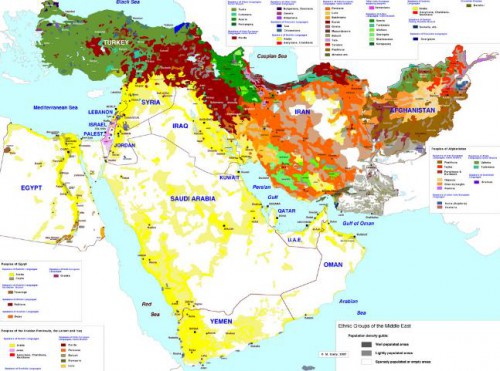
 Pour en revenir à l’Irak, la dissociation entre trois entités sunnite, chiite et kurde satisferait certains acteurs, mais en inquièterait beaucoup d’autres. Elle a été défendue par le président de l’Irak, le Kurde Jalal Talabani,( aujourd’hui en retrait pour des raisons de santé ), mais n’était pas plus recevable autrefois qu’elle ne le serait aujourd’hui par les autres partenaires. Par sa constitution, l’Irak est déjà un Etat unique, souverain, indépendant et fédéral ( Art. 1 ) ; les Kurdes y trouvent de nombreux avantages, ce qui explique leur soutien au gouvernement actuel. Ni la Turquie, ni l’Iran ne sont très favorables à la notion de « Kurdistan » ( la majorité du peuple kurde vit dans ces deux pays ) ; quant aux pays arabes du Golfe, ils ne veulent à aucun prix d’une extension du chiisme iranien sur la Mésopotamie. En résumé, le désordre, créé par l’intervention américaine n’est pas prêt de disparaître. Pour être juste, la politique revancharde envers les Sunnites du premier ministre chiite Nouri al-Maliki n’a pas amélioré les choses, au point que ce dernier est peut-être devenu un obstacle à tout règlement négocié. Oui, le monde devient bien dangereux, et on comprend qu’il est plus aisé de maintenir que de rompre l’intangibilité des frontières… Quelle que soit l’option choisie, le risque de mourir, pour rien ou non, sera présent ; autant que ce soit contre des barbares...
Pour en revenir à l’Irak, la dissociation entre trois entités sunnite, chiite et kurde satisferait certains acteurs, mais en inquièterait beaucoup d’autres. Elle a été défendue par le président de l’Irak, le Kurde Jalal Talabani,( aujourd’hui en retrait pour des raisons de santé ), mais n’était pas plus recevable autrefois qu’elle ne le serait aujourd’hui par les autres partenaires. Par sa constitution, l’Irak est déjà un Etat unique, souverain, indépendant et fédéral ( Art. 1 ) ; les Kurdes y trouvent de nombreux avantages, ce qui explique leur soutien au gouvernement actuel. Ni la Turquie, ni l’Iran ne sont très favorables à la notion de « Kurdistan » ( la majorité du peuple kurde vit dans ces deux pays ) ; quant aux pays arabes du Golfe, ils ne veulent à aucun prix d’une extension du chiisme iranien sur la Mésopotamie. En résumé, le désordre, créé par l’intervention américaine n’est pas prêt de disparaître. Pour être juste, la politique revancharde envers les Sunnites du premier ministre chiite Nouri al-Maliki n’a pas amélioré les choses, au point que ce dernier est peut-être devenu un obstacle à tout règlement négocié. Oui, le monde devient bien dangereux, et on comprend qu’il est plus aisé de maintenir que de rompre l’intangibilité des frontières… Quelle que soit l’option choisie, le risque de mourir, pour rien ou non, sera présent ; autant que ce soit contre des barbares... 
